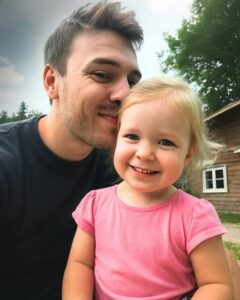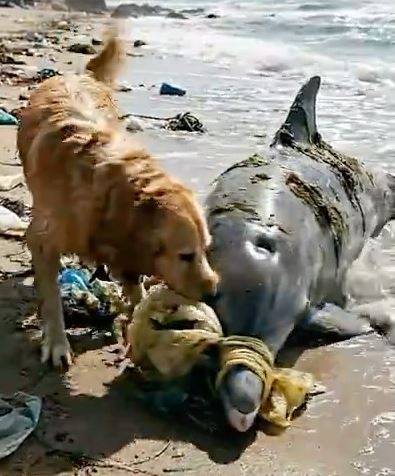My three-year-old daughter, Allie, is a classic daddy’s girl. From the moment she could crawl, she’d trail after me. We have a bond I always thought my wife appreciated—until one night, she looked me in the eye and said:
“You need to go stay at your sister’s for a few weeks. Don’t tell Allie. This has gone too far.”
At first, I thought she was joking. How do you just walk away from your own child, especially when you’re her favorite person in the world?
Me: *“If this is about bonding, why not try a mommy-and-me class or something?”*
Her: *“I don’t have time for that. You need to leave. Don’t explain it—just go. It’ll force her to bond with me. I didn’t have a dad growing up, and it brought me closer to my mom. She’ll be fine.”*
I was stunned. My wife had never been cruel, never even particularly jealous. But now she wanted me to walk away from our daughter, cold turkey?
After a lot of back-and-forth, we compromised: I’d stay with a friend for a week, but I would tell Allie where I was going. That way, she wouldn’t feel abandoned.
**Three days in, I missed my little girl like crazy.** I decided to surprise her with a Happy Meal and some hugs. But the moment I walked into the house, I felt something was off.
No cartoons. No laughter. No toys scattered on the floor. Just silence.
Then I heard my wife’s voice upstairs. She was on the phone—quiet, emotional. I didn’t mean to eavesdrop, but her words stopped me in my tracks.
> “I thought I could handle it alone for a week, but I can’t… I don’t even know if she likes me. Every time I try to play with her, she asks for him. I feel like a babysitter in my own house.”
My heart dropped.
She continued, her voice barely holding together:
> “No, I haven’t told him. I made it about bonding, but it’s not just that… There’s something wrong with me.”
I quietly climbed the stairs, the Happy Meal in my hand now crushed from how tightly I’d been holding it. I knocked and opened the door gently.
Her eyes widened when she saw me.
> “How long have you been here?” she asked, her voice trembling.
I sat beside her and said softly, *“Long enough. What’s going on?”*
And then… she told me.
It wasn’t jealousy. It wasn’t resentment. It was **postpartum depression**—the kind that creeps in late and hides behind daily routines. She’d been quietly struggling for months, feeling more and more disconnected, doubting her worth as a mother. Every time Allie reached for me instead of her, it deepened her belief that she wasn’t enough.
She didn’t ask me to leave to fix our daughter’s bond with her—**she asked because she was afraid she was failing**, and thought removing me was the only way to fix it.
We sat together on the floor, both crying. And I told her the only thing I knew for sure:
> “I’m not mad. But we can’t do this alone anymore.”
From that moment, we changed the way we handled everything. She started therapy. We brought in family to help. We stopped trying to “look fine” and instead started **being honest**.
It wasn’t instant. Allie still clung to me at first, but little by little, things shifted. My wife started reading bedtime stories, making pancakes with Allie on lazy Sundays, laughing more freely.
And then one night, I heard Allie through the baby monitor:
> “Mommy, you’re my best friend.”
I looked over at my wife, and I swear she was glowing.
If you’re a new parent—or even a few years in—and you feel overwhelmed, you are *not* alone. Postpartum depression doesn’t always show up right after birth. Sometimes it waits, hiding behind guilt and silence. But the moment you share your truth, the healing can begin.
**Let people in. Ask for help. Speak your heart.**
Because no one was meant to do this alone.
*If this story moved you, consider sharing it. You never know who might be silently struggling and in need of a little hope.*




